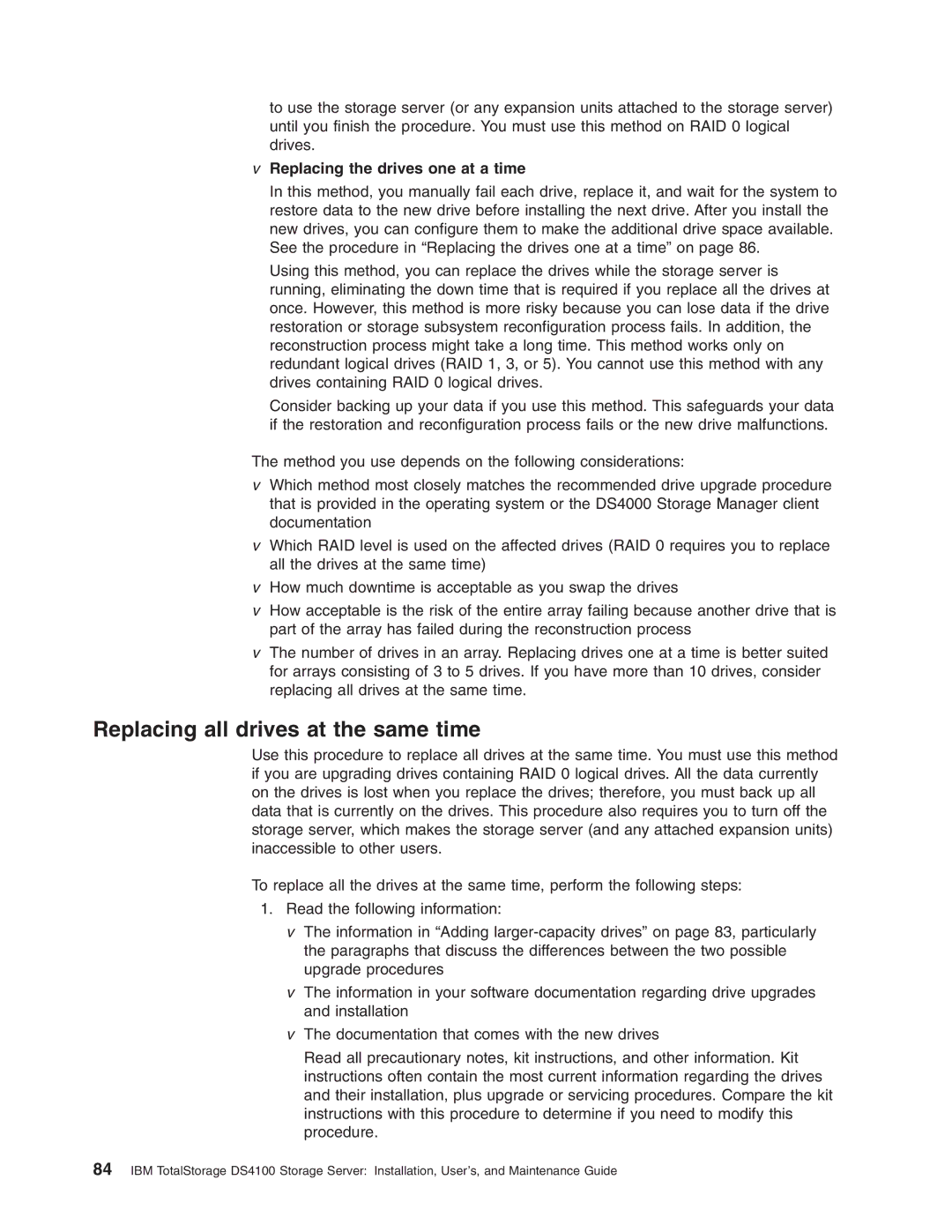to use the storage server (or any expansion units attached to the storage server) until you finish the procedure. You must use this method on RAID 0 logical drives.
vReplacing the drives one at a time
In this method, you manually fail each drive, replace it, and wait for the system to restore data to the new drive before installing the next drive. After you install the new drives, you can configure them to make the additional drive space available. See the procedure in “Replacing the drives one at a time” on page 86.
Using this method, you can replace the drives while the storage server is running, eliminating the down time that is required if you replace all the drives at once. However, this method is more risky because you can lose data if the drive restoration or storage subsystem reconfiguration process fails. In addition, the reconstruction process might take a long time. This method works only on redundant logical drives (RAID 1, 3, or 5). You cannot use this method with any drives containing RAID 0 logical drives.
Consider backing up your data if you use this method. This safeguards your data if the restoration and reconfiguration process fails or the new drive malfunctions.
The method you use depends on the following considerations:
vWhich method most closely matches the recommended drive upgrade procedure that is provided in the operating system or the DS4000 Storage Manager client documentation
vWhich RAID level is used on the affected drives (RAID 0 requires you to replace all the drives at the same time)
vHow much downtime is acceptable as you swap the drives
vHow acceptable is the risk of the entire array failing because another drive that is part of the array has failed during the reconstruction process
vThe number of drives in an array. Replacing drives one at a time is better suited for arrays consisting of 3 to 5 drives. If you have more than 10 drives, consider replacing all drives at the same time.
Replacing all drives at the same time
Use this procedure to replace all drives at the same time. You must use this method if you are upgrading drives containing RAID 0 logical drives. All the data currently on the drives is lost when you replace the drives; therefore, you must back up all data that is currently on the drives. This procedure also requires you to turn off the storage server, which makes the storage server (and any attached expansion units) inaccessible to other users.
To replace all the drives at the same time, perform the following steps:
1. Read the following information:
vThe information in “Adding
vThe information in your software documentation regarding drive upgrades and installation
vThe documentation that comes with the new drives
Read all precautionary notes, kit instructions, and other information. Kit instructions often contain the most current information regarding the drives and their installation, plus upgrade or servicing procedures. Compare the kit instructions with this procedure to determine if you need to modify this procedure.
84IBM TotalStorage DS4100 Storage Server: Installation, User’s, and Maintenance Guide
